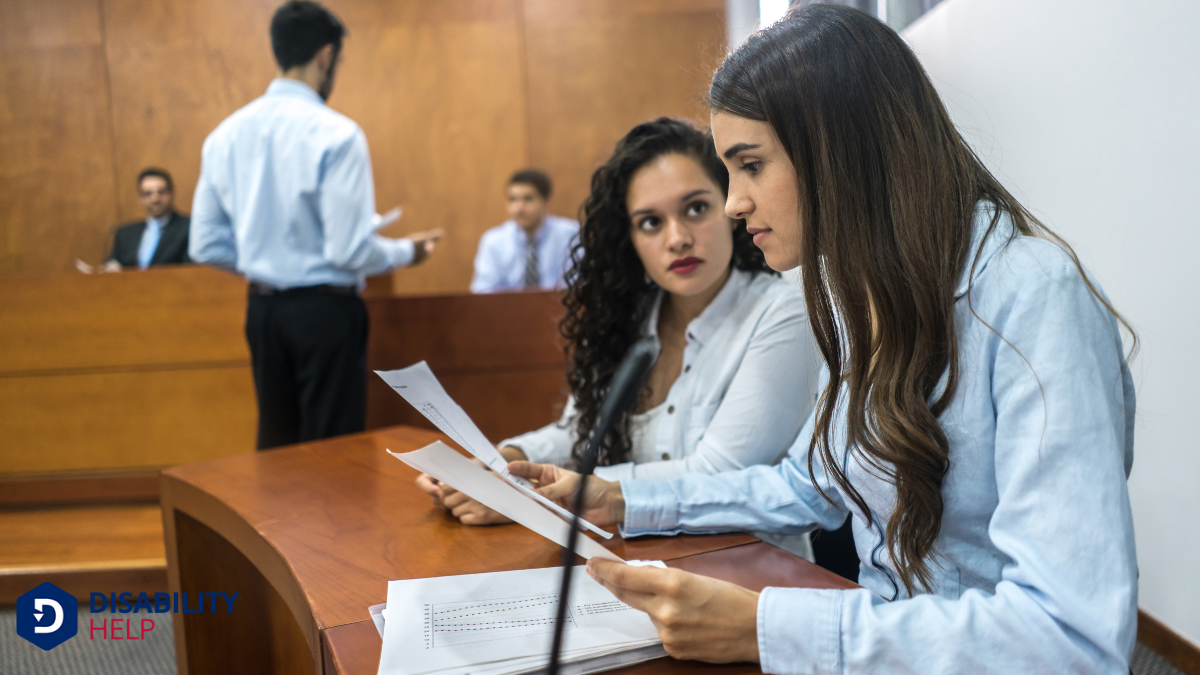We often wonder if personal injury lawyers spend much of their time in court. While the dramatic courtroom battles depicted in movies might suggest so, reality often differs. Most cases are resolved through negotiations without ever reaching trial. But what happens when negotiations stall or disagreements arise? Understanding when and why personal injury cases go to court can shed light on this intriguing aspect of legal practice. Let's explore further.
Key Takeaways
- Personal injury lawyers often aim to settle cases out of court through effective negotiation tactics.
- Court appearances for personal injury lawyers are less frequent due to successful settlements.
- Trials can be costly and unpredictable, making settlements a preferred option for lawyers.
- Evidence strength and liability disputes sometimes necessitate court proceedings in personal injury cases.
- Lawyers prioritize client outcomes, whether through settlements or court trials, based on case specifics.
The Nature of Personal Injury Cases
When we explore the nature of personal injury cases, it's essential to understand their complexities and implications. These cases arise when someone is harmed due to another's negligenceA legal concept where a party fails to exercise reasonable care, resulting in harm to another person... or intentional acts.
Our legal system aims to guarantee fair compensation for the injured party, covering medical expenses, lost wages, and pain and suffering. We must remember that each case is unique, with factors like severity of injury, liability, and evidence influencing the outcome.
In our journey to comprehend these cases, we see that personal injury lawThe area of law that deals with compensating individuals who have been injured, including those with... serves as a protective framework for individuals. It holds parties accountable and seeks justice.
The Role of Negotiations in Settlements

Let's explore how essential negotiation skills are in reaching successful settlements in personal injury cases.
We need to evaluate settlement offers carefully, ensuring they reflect the true extent of the injuries and damages.
Together, we can develop effective strategies to secure the best possible outcomes for our clients.
Importance of Negotiation Skills
Although personal injury cases often seem straightforward, the art of negotiation plays an essential role in securing favorable settlements. We must appreciate how critical negotiation skills are in these situations. When we negotiate effectively, we advocate fiercely for fair compensation without the need for lengthy court battles. These skills allow us to present our demands persuasively, ensuring that the other party understands the value of our claims.
Strong negotiation isn't just about being assertive; it's about listening and understanding the opponent's position. By doing so, we can identify common ground and work towards a solution that satisfies both parties. This approach saves time, reduces stress, and often results in a more favorable outcome than a drawn-out legal process would offer.
Evaluating Settlement Offers
Negotiation skills not only help us advocate for fair compensation but also play an essential role when evaluating settlement offers.
We need to carefully assess each offer by considering the full extent of injuries and the impact on our lives.
It's vital to determine if the settlement aligns with our needs, covering both current expenses and future costs.
Strategies for Successful Settlements
When seeking a successful settlement, understanding the role of negotiations is essential. We need to approach each case with a clear strategy, focusing on the needs and interests of all parties involved.
By pinpointing our objectives and identifying the other side's priorities, we can find common ground. Effective communication is key during these discussions, ensuring we convey our client's position clearly while actively listening.
Preparation is fundamental; we gather evidence and anticipate counterarguments. This informed stance strengthens our position, making us ready to negotiate favorable terms.
Patience and flexibility are also important, as negotiations often involve compromise. By staying open to creative solutions, we can craft agreements that satisfy both parties, ultimately leading to successful settlements without the need for court.
Factors That Lead to Court Proceedings
When we face disputed liability issues or can't agree on settlement offers, court proceedings often become necessary.
These situations arise when both parties can't see eye to eye on who was at fault or how much compensation is fair.
Disputed Liability Issues
Although most personal injury cases are resolved through settlement, disputed liability issues often lead us to court proceedings.
When parties can't agree on who's at fault, we're forced to present evidence and argue our case before a judge or jury. These disputes arise when each side interprets the facts differently or when evidence is unclear.
For example, in a car accident, both drivers might claim the other was responsible. In such cases, it's our job to gather evidence like witness statements, traffic camera footage, or expert testimony to support our client's position.
Our goal is to provide a clear picture of what happened and persuade the court of our client's innocence. When liability issues remain contentious, courtroom intervention becomes necessary for resolution.
Settlement Offer Disagreements
Settlement offer disagreements are a common hurdle that can push personal injury cases into the courtroom. When we're negotiating a settlement, both sides aim to reach a fair agreement.
However, disagreements often arise over the compensation amount. We might see the settlement as too low to cover medical bills, lost wages, or pain and suffering. On the other hand, the opposing party might believe they’re offering a reasonable amount.
When there's no middle ground, going to court becomes the next step. In court, evidence is presented, and a judge or jury decides the case's outcome.
This process can be lengthy and costly, but sometimes it’s the only way to achieve justice. Understanding these dynamics helps us navigate settlement negotiations effectively.
Understanding the Costs and Risks of Trials
While trials can be a necessary step in securing justice, they come with significant costs and risks that we must carefully consider. Understanding these factors helps us make informed decisions. Here are some key points:
- Financial Costs: Trials are expensive. Legal fees, expert witnesses, and court costs add up quickly, potentially affecting our final compensation.
- Time Commitment: Trials can be lengthy, often taking months or even years to conclude. This delays any resolution and prolongs stress.
- Uncertainty: The outcome of a trial is unpredictable. Even with strong evidence, there's no guarantee of a favorable verdict.
- Emotional Toll: The trial process can be emotionally draining, requiring us to relive painful events, which can affect our well-being.
Considering these aspects helps us weigh the benefits against the risks.
The Lawyer's Perspective on Going to Trial

From a lawyer's perspective, deciding to take a case to trial involves balancing multiple factors that directly impact the client's best interests.
We must assess the strength of the evidence, potential outcomes, and costs. Trials can be lengthy and unpredictable, so it's essential to weigh the likelihood of achieving a favorable verdict against the benefits of a settlement.
We also consider our client's emotional readiness for the stress of a trial.
Communication with our clients is key. We guarantee they understand the process, risks, and possible outcomes.
It's critical they feel empowered in making informed decisions. While we're prepared to advocate fiercely in court, our priority is securing the best outcome for our clients, whether that means settling or going to trial.
How Often Do Personal Injury Cases Go to Court?
Why do most personal injury cases settle before reaching the courtroom? Often, both parties prefer avoiding the lengthy, unpredictable, and expensive court process. From our experience, we find that only a small percentage of cases actually go to trial. Here’s why:
- Cost-Effective: Settling out of court is typically less expensive than a full trial, saving time and resources for everyone involved.
- Predictability: Trials can be uncertain, and settlements allow both parties to have more control over the outcome.
- Time-Saving: Court schedules can lead to long delays; settlements can resolve disputes much faster.
- Privacy: Settling keeps details confidential, whereas trials are public.
Understanding these reasons helps us see why settling is often preferred, making court appearances less frequent.
Strategies for Achieving Fair Settlements
Settling before reaching the courtroom offers numerous advantages, and now let's focus on how to achieve a fair settlement.
First, gathering all relevant evidence strengthens our position. We should compile medical records, witness statements, and accident reports meticulously.
Next, understanding the claim's true value is essential. Let's consider medical expenses, lost wages, and pain and suffering to guarantee we're realistic in our demands.
Communication plays an important role, too. Open discussions with the opposing party can clarify misunderstandings and foster goodwill.
We also need to remain patient and flexible; negotiations often require time and compromise.
Finally, involving a skilled personal injury lawyer can greatly enhance our chances. Their expertise helps navigate complexities, making sure we reach an equitable settlement.
Conclusion
In our experience, personal injury cases rarely make it to court because we focus on negotiating fair settlements for our clients. We recognize that trials can be costly and time-consuming, so we prioritize resolving disputes amicably whenever possible. However, if a trial becomes necessary due to disagreements over liability or compensation, we're fully prepared to advocate vigorously on behalf of our clients. Ultimately, our goal is to achieve the best possible outcome for those we represent.






